Your Vegan Kitchen is a Protest Kitchen
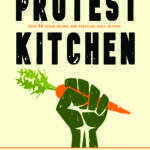
In our new book, Protest Kitchen: Fight Injustice, Save the Planet, and Fuel Your Resistance One Meal at a Time, Carol J. Adams and I suggest that your food choices offer a way to challenge the rise of repressive and regressive values. That is, a vegan diet offers opportunities not just to confront factory farms and environmental destruction, but also to impact misogyny, racism, and injustice.
Our book is headed to the printer this week and is due to arrive in bookstores in the fall, but it’s available for preorder on Amazon and Barnes and Noble now. (It will be available as an audio book in addition to print and e-reader formats.)
Carol and I started talking about this book shortly after the presidential election, ... Read More >
Shifting From Vegan to Paleo is a Step in the Wrong Direction
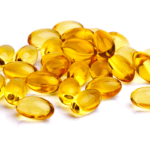
Is there such a thing as the one and only healthy way to eat? Best-selling authors like Dr. Mark Hyman would like you to think so.
Recently, he’s become a proponent of an eating style that he calls “pegan,” which as you might guess is a portmanteau of Paleo and vegan. In designing this diet, Dr. Hyman says that he “synthesized the best aspects of each and integrated them with the anti-inflammatory and detoxification principles of functional medicine to create a balanced, inclusive dietary plan that changed my life and my patients’ lives, too.”
Uh oh –“detoxification principles” plus anecdotal evidence pretty much raises red flags all over the place for me.
But Dr. Hyman is correct in saying that his diet is a ... Read More >
The FODMAP Diet for Vegans: An Update
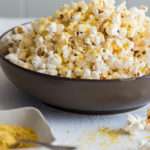
FODMAPs are carbohydrates that are fermented in the gut and can cause painful gas and bloating for people who have Irritable Bowel Syndrome (IBS). I shared resources for vegans with IBS in a blog post in 2016, which gives a more thorough explanation of a low-FODMAP diet.
The diet is a challenge for vegans since many foods that are common in our diets are restricted, at least in the early stages of a low-FODMAP approach. In particular, legumes are limited and so are certain nuts, fruits and vegetables. Because IBS is such a common condition, though, there is considerable interest in expanding the list of foods that fit into a low-FODMAP plan. The most recent research is from Monash University in Australia and it looked ... Read More >
The New and Improved Vegan Health Website

If you’ve followed this blog for any period of time, you know that I’m a big fan of the website VeganHealth.org. In fact, I consider it to be the most reliable and comprehensive source of information about vegan diets on the web – or anywhere for that matter.
The site was founded in 2003 by dietitian Jack Norris who is co-founder and executive director of Vegan Outreach. Jack has single-handedly kept this site updated for all these years in an effort that can only be described as heroic.
Last month, the site had a face lift, making it more user-friendly. And because the project has grown beyond what one person (even Jack!) can manage, Vegan Health now has a team keeping it updated. I’m happy ... Read More >
Fortified Soy Milk is Healthy Alternative to Cow’s Milk for Toddlers

A joint news release from Dietitians of Canada and the Canadian Paediatric Society urges parents to be careful in their selection of milks for young children. Specifically, they are concerned about the low protein and mineral content of unfortified plant milks.
I agree with most of what they say. Unfortified plant milks should not be a main part of toddlers’ diets. It’s also likely, as they suggest, that there are advantages to providing children with either breast milk or commercial infant formula up to the age of two years. But I disagree with their suggestion that it’s okay to start kids on cow’s milk at age one, but not fortified soymilk. In fact, their statement conflicts with recommendations in the Academy of Nutrition and Dietetics ... Read More >
Vegetarian Diets and Depression

A couple of months ago, a study on depression among male vegetarians made the social media rounds (1). I know from the flurry of emails I received that many vegans were alarmed by the findings. As is often the case, though, the headlines were far more dramatic than the actual findings.
The subjects were a small group of self-identified vegans and vegetarians, many of whom turned out to be nothing of the kind. In fact, 5% of the vegetarians and 72% of the vegans (72 percent!) said they currently consume some red meat. They were also just as likely as the omnivores in the study to consume fatty fish and shellfish. So I don’t know – maybe the study showed that depression is more common ... Read More >
Plant Milks and Iodine: Recommendations for Vegans
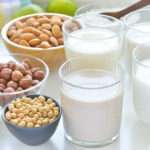
The growth of the plant milk market is nothing short of amazing. Given the variety of options, it’s easier than ever to switch out cow’s milk for a more compassionate alternative.
But as these milks become more popular it’s natural (and important) to ask questions about how replacing cow’s milk with plant milks might affect nutrient intake.
In a study published this month in the British Journal of Nutrition, researchers looked at iodine content of plant milks in the United Kingdom. Iodine is a mineral needed for healthy thyroid function. Deficiency in pregnancy or early childhood can have lifelong effects on learning and development in children. In adults, chronic deficiency may affect mental function and it might raise risk for one type of thyroid cancer.
... Read More >A Science-Based (and Vegan) Perspective on the New “What the Health” Documentary
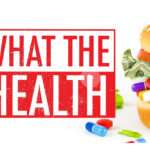
I wasn’t really planning on writing a review of the new vegan documentary What the Health. I watched it; I fumed; I complained on my personal Facebook page and more directly to my science-based colleagues. And then I figured I’d move on.
The thing that changed my mind is that the film is getting considerable (negative) attention from the non-vegan sphere. Some of these reactions are just anti-vegan diatribes and some are aimed purely at being offensive. But some are thoughtful and informed. And the fact is that it’s not possible to defend this film against the thoughtful and informed criticisms. Not from a scientific point of view anyway. And there is little to be gained by making weak, exposed efforts to defend bad science ... Read More >
Brand New Website! Plus a Nutrition Primer on Vegan Bone Health
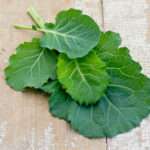
If you’re reading this on the web, you’ll see that TheVeganRD has received a long overdue redesign. A big thank you to web designer Chad Smalley (who also happens to be a bassist and singer with Houston band Blaggards and is a vegan. Chad was great to work with and never even batted an eye (at least I don’t think he did) when I said that my taste in design runs toward “cozy vintage.” I think he did an amazing job.
In celebration of my brand new look, I want to start expanding the nutrition primers on this site. In particular, I’ve lately had a lot of questions about bone health. They have come mostly from vegan women who have experienced a fracture or been ... Read More >
Cow’s Milk, Plant Milks and Growth in Children

New research from Canada found that kids who don’t drink cow’s milk are shorter than those who do. It’s a finding that makes for some sensational headlines but the study itself is not all that exciting.
This was a cross-sectional study of 5,034 children between the ages of two and six years (average age was about three years). Of the study population, 246 kids, or about 5% of the subjects, drank only non-cow’s milk, which included plant milks and goat’s milk. For each daily cup of non-cow’s milk consumed, children were 0.16 inch shorter. By age three, those who drank three cups of non-cow’s milk per day were about 0.6 inches shorter than children who drank an equivalent amount of cow’s milk, but this finding ... Read More >
